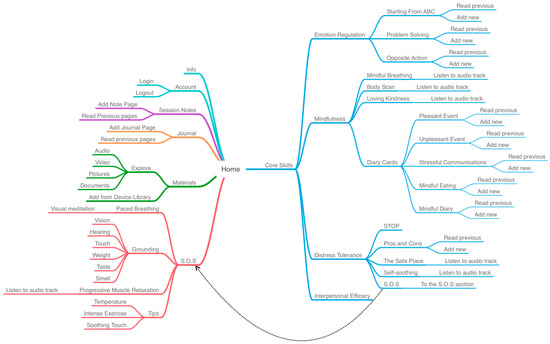Survey Reveals New Zealand’s Digital Natives Favor In-Person Mental Health Support Over Online Options

**Survey Reveals New Zealand’s Digital Natives Favor In-Person Mental Health Support Over Online Options**
In an era where digital solutions are increasingly becoming the norm, a recent survey has revealed a surprising trend among New Zealand’s younger generation: despite their comfort with technology, many of the country’s “digital natives” still prefer in-person mental health support over online options. This finding sheds light on the complex relationship between technology and mental health, and raises important questions about how best to provide support for young people in a rapidly digitizing world.
### The Survey: Key Findings
The survey, conducted by a leading mental health research organization in New Zealand, polled over 1,500 young people aged 16 to 30. It aimed to assess their preferences for mental health support, with a particular focus on comparing in-person services with online options such as teletherapy, mental health apps, and chat-based counseling.
The results were striking. Despite the widespread availability of online mental health resources, 68% of respondents indicated that they preferred face-to-face interactions with mental health professionals. Only 24% expressed a preference for online services, while the remaining 8% were undecided or had no strong preference.
### Why Do Digital Natives Prefer In-Person Support?
Given that this generation has grown up immersed in digital technology, the preference for in-person support may seem counterintuitive. However, several factors help explain this trend:
1. **The Importance of Human Connection**: Many respondents cited the value of human connection in their mental health care. Face-to-face interactions allow for non-verbal cues such as body language, eye contact, and tone of voice, which can be crucial in building trust and rapport with a therapist. These elements are often lost or diminished in online settings, making it harder for some individuals to feel fully understood or supported.
2. **Perceived Effectiveness**: A significant number of respondents reported that they believed in-person therapy was more effective than online alternatives. While online therapy has been shown to be effective for many people, some young New Zealanders feel that the physical presence of a therapist enhances the therapeutic experience, allowing for deeper emotional engagement and more meaningful conversations.
3. **Concerns About Privacy and Security**: Despite their familiarity with digital platforms, many young people expressed concerns about the privacy and security of online mental health services. Data breaches, hacking incidents, and the potential for sensitive information to be shared without consent were all cited as reasons for preferring in-person support.
4. **Digital Fatigue**: The COVID-19 pandemic accelerated the adoption of online services across various sectors, including mental health. However, the increased reliance on digital platforms for work, education, and social interaction has led to a phenomenon known as “digital fatigue.” Many young people are feeling overwhelmed by constant screen time and are seeking out opportunities to disconnect from their devices. For some, in-person therapy offers a welcome break from the digital world.
5. **Cultural and Social Factors**: In New Zealand, there is a strong cultural emphasis on community and interpersonal relationships, particularly among Māori and Pasifika populations. For these groups, in-person support may align more closely with traditional values of collective well-being and face-to-face communication. This cultural context may influence the broader preference for in-person mental health services among young people.
### The Role of Online Mental Health Services
While the survey indicates a clear preference for in-person support, it is important to recognize the value of online mental health services, particularly for those who may not have access to traditional therapy. Online options can provide a lifeline for individuals in rural or remote areas, those with mobility issues, or those who face financial barriers to accessing in-person care.
Moreover, online services can offer greater flexibility and convenience, allowing individuals to access support from the comfort of their own homes and on their own schedules. For some young people, particularly those with social anxiety or other conditions that make leaving the house difficult, online therapy can be a more accessible option.
### Striking a Balance: The Future of Mental Health Support in New Zealand
The survey results suggest that while online mental health services have an important role to play, they should not be seen as a one-size-fits-all solution. Instead, a hybrid approach that combines the benefits of both in-person and online support may be the most effective way to meet the diverse needs of New Zealand’s young people.
Mental health organizations and policymakers should take these findings into account when designing services for the future. Expanding access to in-person therapy, particularly in underserved areas, while also improving the quality and security of online services, could help ensure that all young people have access to the support they need.
### Conclusion
The survey’s findings highlight the importance of human connection in mental health care, even for a generation that has grown up with digital technology. While online services offer convenience and accessibility, many young New Zealanders still value the depth and authenticity of in-person interactions with mental health professionals.